
Benaki Museum
Member: Society Premium
Since: 11.07.2013
Since: 11.07.2013
1, Koumbari Street, GR-106 74 Athens, Greece
Benaki Museum: Christian Zervos & Cahiers d’Art - The Archaic Turn
From: 12.12.2019 To: 01.03.2020
Share
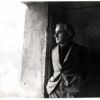
Benaki Museum / Pireos 138
Opening: Monday 9 December 2019, time 20:00
Duration: 12 December 2019 – 1 March 2020
The exhibition «Christian Zervos & Cahiers d’Art. The Archaic Turn» has been organised by the Benaki Museum, the French School at Athens and the Musée Zervos in Vézelay, France, with the goal of illuminating the breadth and significance of the work of the Greek-born publisher and critic Christian Zervos and his relationship with Greece.
The exhibition will open on Monday 9 December 2019 at 20:00, at the Benaki Museum / Pireos 138, under the auspices of the Embassy of France in Greece and with the cooperation of Cahiers d’Art editions and thanks to the generous grant of Stavros Niarchos Foundation.
The exhibition is based on the results of a research programme of the French School at Athens, entitled «Christian Zervos au miroir de la Grèce» (2017-2020), which has been running since 2017 in collaboration with a team of researchers active in France and Greece.
CHRISTIΑN ΖERVOS
Christos or Christian Zervos (Argostoli 1889–Paris 1970) played a definitive role in shaping the cultural climate in interwar Paris through his journal Cahiers d’Αrt, which he founded in 1926 and published until 1960. It was one of the longest-lived modernist journals given that it numbers 97 issues. As early as the first issue, Cahiers d’Αrt had focused on promoting modern art and on the dialogue between works of different origins and different historical periods. Zervos is also known as the publisher of the iconic catalogue of Pablo Picasso’s paintings from 1932 on, known today as «le Zervos», as well as his archaeological publications on prehistoric civilisations, for example those of Neolithic or Minoan Crete and the Cyclades. His contribution was particularly significant in the dissemination of ancient – especially prehistoric – Greek art as well as the redefinition of ancient civilisations and archaic forms in the context of modernism.
Zervos always began by associating timeless, universal morphological trends with the so-called "primitive" or "archaic" arts and the "primordial" instincts of humanity. He thus proposed a new perspective on archaeological findings, which activated them in the present, placing modern art within a historical perspective. The exhibition dedicated to Zervos and Cahiers d’Art, the first to be held in Greece focused on the «archaic turn» of both the journal and the art world of the interwar period, highlights the research and publishing methodology which defined his career. Its characteristics are, among others: a preference for periods lacking written documentation, on-site research, the programmatic constitution of a photographic narrative of the civilisations of the «Prehistoric South», a polychronic perception of history through photography, ethnographic methodology and a cosmopoietic approach to the past.
The story of Cahiers d’Art editions coincides with Zervos’s two-way relationship with Greece. During the interwar period this relationship inspired the archaic turn of modern art, which was founded on works representative of the «primitive art of the Aegean», such as Cycladic figurines. After the war, on the occasion of Zervos’s physical but also intellectual «return» to the homeland, from 1945 onwards, he embarked through his publications on a reconsideration of the «origin» of Mediterranean civilisation with the ultimate aim of tracing the sources of primitivism in southern Europe: Sardinia, the Cyclades, Crete. This double journey is presented in the exhibition, through works and documents that highlight the relationship of modern and archaic, as an anti-classical claim, and as an aesthetic and moral value.
STRUCTURE OF THE EXHIBITION
The exhibition is comprised of two parallel narratives. The first focuses on Zervos’s career and the importance of his publications and exhibitions in the fields of art, art criticism, and archaeology in Paris and in Athens from 1926 to 1970. The second is focused on iconic works from his personal collection, which represent his priorities and preferences in terms of artists and movements. This collection, held at the museum in Vézelay, is travelling to Greece for the first time.
The exhibition begins with the early years, during which Zervos was working as a critic, after having worked on periodicals published by Albert Morancé editions, and presents a chronology of the foundation and operation of the journal Cahiers d’Αrt through original documents. Also highlighted are Zervos’s archaeological research, his travels in the Mediterranean for the collection of material and his contact with archaeologists in view of the photographic books on the Cyclades, Crete and Sardinia. At the core of this account are about 60 rare and unique works of modern art from Zervos’s personal collection, with works by artists such as Matisse, Miró, Picasso, Laurens, Calder, Lam, Kandinsky, Ghika, Sklavos, Giacometti and among others.
The exhibition follows a chronological course. It begins with Zervos’s first publishing endeavours and his study interests, from Alexandria to Paris. The first section is on the first ten years of the journal Cahiers d’Αrt (1926-1937), during which his activity is at the forefront of developments in the Paris art scene. This is the period during which Zervos connects with figures at the peak of the intellectual avant-garde of the time, such as Le Corbusier, Fernand Léger, Paul Éluard, Wassily Kandinsky, Georges Henri Rivière and Paul Klee among others. At the same time, he is interested in archaeology and anthropology, undertakes his longed-for return trip to Greece and publishes the book L’art en Grèce (1934), a kind of manifesto in favour of the archaic turn in modern art. It is at that time that he publishes the first volume of the extensive catalogue of the work of Pablo Picasso (the artist who determined the identity of Cahiers d’Art). Zervos’s relationship with Picasso ensured him recognition and success. His role as a publisher in surrealist circles in the 1930s and his relationships with key representatives of the movement such as André Breton, Paul Éluard, Man Ray, Marcel Duchamp, Max Ernst, André Masson, Georges Hugnet and others, is also significant. The exhibition also examines the turn in Zervos’s attention to archaeological publications proposing a revised, «archaic» history of the Mediterranean. The last section of the exhibition, which extends from 1943 until his death, deals precisely with this two-way and ambivalent relationship with the Mediterranean–Archaeology–Greece “triptych”. Zervos's previously unknown relationships with figures from the Greek intellectual world, such as Nikos Hadjikyriakos-Ghika, Michalis Tombros, George Seferis, Angelos Procopiou and Yerassimos Sklavos, which highlight his contribution to the shaping of Greek modernism, are documented here.
The starting point for this exhibition is the observation that Christian Zervos has been one of art history's "missing persons". The exhibition aspires to cover this void while introducing the general public to the critic's multifaceted and highly significant work. The documentation from the journal's inexhaustible material and the recording of the successive phases and expressions of Zervos's publishing activity attempt to correct the scarcity of knowledge about his work and to emphasise everything that connected him with Greek culture. At the same time, emphasis is placed on the wider context of the conception and recruitment of «Mediterranean primitivism» by the proponents of modern art. Finally, Christian Zervos's work is included within modern Greek intellectual life, laying the foundations of his methodology in relation to his Greek origin and highlighting his significance for the reception of modernism in Greece.
PUBLICATION
The exhibition is accompanied by a catalogue of 325 pages published by the Benaki Museum, with the exclusive support of Τhe J. F. Costopoulos Foundation. The catalogue contains reproductions of works and an extensive and documented timeline as well as original texts by Christian Derouet, Alexandre Farnoux, Polina Kosmadaki, Eleni Stavroulaki and Panayotis Tournikiotis.
EXHIBITION CURATORS:
Christian Derouet, Conservateur général honoraire du patrimoine, Founding Curator, Musée Zervos, Vézelay
Alexandre Farnoux, Professor of Archaeology and Greek History, Sorbonne University, Paris and former Director of the French School at Athens
Polina Kosmadaki, Curator of Modern and Contemporary Art, Benaki Museum
GUIDED TOURS
Guided tours will be carried out each time by a special guest.
The guided tours' schedule is as follows:
Sunday 22/12/2019 at 11:00 - Guided tour by the curator of the exhibition Polyna Kosmadaki, Curator of Modern and Contemporary Art at the Benaki Museum
Sunday 05/01/2020 at 11:00 - Guided tour by the art historian Vassiliki Daniil
Saturday 11/01/2020 at 11:00 - Guided tour by the curator of the exhibition Alexandre Farnoux, Professor of Archaeology and Greek History, Sorbonne University, Paris and former Director of the French School at Athens
Sunday 19/01/2020 at 11:00 - Guided tour by the curator of the exhibition Polyna Kosmadaki, Curator of Modern and Contemporary Art at the Benaki Museum
Saturday 25/01/2020 at 11:00 - Guided tour by the Professor of Architectural Theory and the director of the History and Theory Laboratory at the National Technical University of Athens Panagiotis Tournikiotis
Saturday 01/02/2020 at 11:00 - Guided tour by the art historian Vassiliki Daniil
Saturday 22/02/2020 at 11:00 - Guided tour by the curator of the exhibition Polyna Kosmadaki, Curator of Modern and Contemporary Art at the Benaki Museum
Reservation is required. Information-reservation: 210 3671015, Monday – Thursday, 10:00 – 15:00.
EDUCATIONAL PROGRAMS
As part of the exhibition, The Benaki Museum / Education organises educational programs for school groups (5th & 6th grade of Elementary, all grades of High School), every Thursday from January 16th, 2020 until Thursday, February 27th, 2020, while for children aged 7 to 10 years old plans special workshops on Sunday 26 January and Sunday 16 February, 12.00-13.30. For more information, please contact The Benaki Museum / Education, 210 3671067-69, Monday to Thursday, 10.00-14.00.


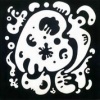
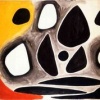

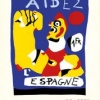
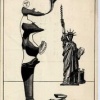
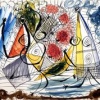

.jpg)









.jpg)


.jpg)







.jpg)






1.jpg)






1.jpg)









1.jpg)



























1.jpg)
.jpg)
1.jpg)





.jpg)












